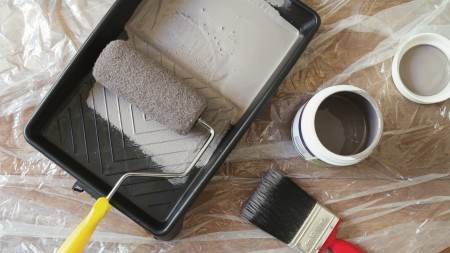When it comes to rental property maintenance, a stitch in time really does save nine.
A well-maintained rental home not only attracts the best tenants and secure the highest possible rent, it also goes a long way in preserving the capital value of your asset and ensuring it appreciates over time, yet many landlords are reluctant to do so – often to their detriment.
Jill Lloyd, Claremont Area Specialist in Claremont and sectors of Rondebosch for Lew Geffen Sotheby’s International Realty, says: “Lack of upkeep and regular maintenance is not only costly down the line when avoidable major repairs are required, it can also be downright dangerous.”
She recounts a near-tragic personal experience: “We were between houses after I sold my own property and we rented a house in Bishopscourt for a few months and on the first night my daughter got a shock in the bathroom that could easily have killed her.
“It turned out the whole geyser and plumbing system was live and, as we all know, water and electricity don’t mix well. Fortunately, I was there and saved her but it could have ended very differently.”
Road where the electrical certificate was done by a friend of the family, albeit they were somehow qualified to issue a certificate. The pool pump was connected to the sub box in the cottage and there was no earth leakage on that at all. Someone could have been killed. Please stress that the certificates must be done by reputable people.
She believes that not only should water and electrical components of rental properties be checked between tenants, especially where there are multiple tenants like student accommodation, rental homes should also be required to periodically apply for compliance certification.
“At the very least, tenants should have the right to request an electrical compliance certificate, especially if they have small kids where earth leakage is vital.”
Jenna Pietersen, Rental Agent for the Atlantic Seaboard and City Bowl office agrees that regular maintenance is critical in attracting quality tenants, especially in a slow market.
“Recently I have struggled to let several stunning, well-priced properties that would have easily let if they were better maintained.
“Prospective tenants are spoilt for choice at the moment and properties that are well-maintained and visually appealing will always have the edge.”
She says that at the very least, landlords should give their properties a fresh coat of paint, especially after a long-term tenant has vacated and ensure the garden is neat and tidy and all the fittings and fixtures in the house are neat and in working order.
“As with a car, you have to keep your hand on it, otherwise small issues add up and you’ll paying way more towards maintenance than necessary in time.”
She offers landlords five top tips for remaining on top of their maintenance and reducing the risk of major repairs:
Schedule regular property inspections and maintenance to keep the property in the best possible condition. This way, even if your tenants haven’t reported a problem, you will still find it before it’s become a big, expensive issue;
Ensure the contractors you use are qualified to carry out the work and are registered with the relevant association for their trade. Where possible, obtain guarantees for work done and if it’s a large project, withhold 10% of their final invoice until you’re satisfied the work has been completed to your satisfaction;
Forward plan when you renovate to minimise the cost and time of repairs. For example, when renovating a bathroom, make sure working facets are easily accessible for repairs by not installing cisterns concealed behind walls and shower tiles;
Check the property is watertight ahead of winter by checking for any loose or missing roof tiles, gaps in the brickwork, window and door frames – anywhere water could penetrate. Have the gutters and drains cleared and make sure all the guttering and downpipes are in good condition.
She adds that landlords should also bear in mind that if they show they care for their property by providing good quality finishes and fittings and maintain the property well, tenants will generally take better care of it and treat it more as their own.
Lloyd concludes: “A well cared for pristine home will almost always get a better rental and not only will regular maintenance add to the value of the investment, it is also a tax-deductible expense.”





